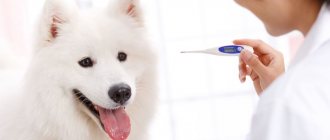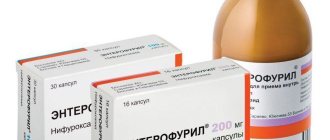When your pets get sick, you need to act quickly. A minute of delay can cost them their lives, so you should always have a veterinary first aid kit at hand. In addition to medications, it should contain the doctor’s phone number and the addresses of veterinary clinics, including those that are open 24 hours a day.
In this article we will make a detailed analysis of your pet’s first aid kit, after which you will be able to:
- Build your own veterinary first aid kit for dogs and cats by choosing the right product in our store.
- Order a ready-made set, where all the essentials will be packed in an organizer.
What's included in a veterinary first aid kit?
A veterinary first aid kit for cats and dogs should include essential items.
Dressing materials
- Sterile bandages, 3 pcs. – to choose from.
- Sterile cotton swabs, 1 pack.
- Self-focusing bandages, 3 pcs. – to choose from.
Tools, auxiliary accessories
- Bag for transporting cats – 1 pc.
- Blanket Talismed or Pet Med 1 pc. (optional).
- Digital veterinary thermometer – 1 pc.
- Disposable syringes with injection needles – 1; 2; 5 ml. (3 pieces each).
- Claw cutter, 1 pc.
- Tablet dispenser, 1 pc.
Antiseptics (prevent infection from entering the pet’s wounds)
Pharmoxidine (veterinary chlorhexidine) – 1 fl.
Septo spray – 1 fl.
Terramycin spray, Chemi spray – 1 fl.
Aluminum spray, Second skin spray – 1 fl.
Adsorbents (optional, 1 pack)
- Simbosorb
- Enterozoo.
Probiotics (optional, 1 pack)
- Symbolact;
- Subtilis.
Anthelmintics (optional, 1 pack.)
- Cestal;
- Milbemax;
- Broadline.
Flea and tick medications (optional, 1 pack)
- Stronghold;
- Simparica;
- Bravecto.
Antibiotics (1 pack, as prescribed by a doctor)
- Sinulox;
- Amoxicillin;
- Clavaseptin.
Heart medications (1 pack, according to indications, to choose from)
- Vetmedin;
- Pimopet.
Painkillers and anti-inflammatory drugs (1 pcs. to choose from)
- Onsior;
- Rimadyl;
- Meloxidil suspension;
- Traumatin;
- Analgivet.
Antiemetics
Sereniya (solution for injection) – 1 fl.
Wound healing ointments (optional, 1 package)
- Ranosan;
- Levomekol;
- Ranodez;
- Gamabiol;
- Travmagel.
Vitamin preparations (optional)
- Gamavit – 2 fl. 10 ml each;
- Laveta super – 1fl.;
- Chelavit – 1 fl.
Antihistamines (for the treatment of pet skin dermatitis):
- Apoquel;
- Exekan;
- Stop-itch suspension.
Eye drops (1 pack, optional)
- Iris;
- Diamond eyes;
- Desacid;
- Kleene;
- Iriplus.
Ear drops and lotions (1 pack of your choice)
- From one;
- Epi-otic;
- Isotik;
- Leopard;
- Kleene;
- Otifri.
Antiviral, immunomodulators, stimulants (optional)
- Elvita-Surprising – 2 fl.;
- Maxidin 0.4% – 2 fl.;
- Fosprenil – 2 fl.;
- Immunofan – 1 pack;
- Anandin – 1 pack.
Other drugs for the veterinary first aid kit
- Ringer-Locke physiological solution 0.9% – 1 fl. Prescribed subcutaneously and intravenously for the treatment of diseases associated with dehydration, poisoning, and blood loss. The product is also useful for washing your pet's eyes.
- Sodium bicarbonate (baking soda), 10 g – 1 fl. The drug is prescribed as an emetic, to neutralize acid burns, etc. 1 fl.,
- Ammonia (to stimulate breathing), 10 ml. – 1fl. Prescribed to stimulate breathing and increase blood pressure. The product is sold in a regular pharmacy.
Pain, spasm, fever
There are a lot of diseases accompanied by pain and fever. The most common are fatigue headaches, respiratory infections, and toothache. Therefore, the list of necessary medications in your home medicine cabinet may include over-the-counter painkillers: non-steroidal anti-inflammatory drugs. Usually we are talking about medications based on ibuprofen, paracetamol, drotaverine hydrochloride (No-spa). However, it is important to consult with your doctor in advance about what items to stock in your first aid kit: a specialist will select medications that you can take on your own to alleviate the condition.
The importance of preliminary consultation is explained by the fact that each drug has indications and contraindications, and each person has individual characteristics, allergic reactions, intolerance. Uncontrolled use of medications is especially dangerous for people with chronic diseases. For example, V. A. Krylov states in his work that “there is a category of drugs that are simply dangerous for asthmatics - due to individual intolerance (allergies), or by definition. Very often there is intolerance to aspirin and related drugs (non-steroidal anti-inflammatory drugs): analgin, citramon, diclofenac, etc.” (Krylov, 2008, pp. 8−9)
In addition, the effectiveness of painkillers and antipyretics may significantly depend on individual characteristics. Researcher Dubikov A.I. points out in his work that “certain NSAIDs are particularly suitable for some patients and others are not suitable” (Dubikov, 2006, p. 62).
What to do if symptoms of poisoning appear at home
Your veterinary first aid kit should always contain products that will save your pet in case of poisoning. This:
- vitamin B6 (pyrodixine);
- vitamin K (KogaPET GIGI)
- Etamsylate (dicenone) – accelerates blood clotting. Sold in a regular pharmacy
- Simbosorb or Enterozoo - sorbents;
- Carvalol is a heart drug;
- Vaseline oil or laxative.
Two drugs are usually used to poison dogs and cats: isoniazid (anti-tuberculosis tablets) and rat poison. They destroy the pet’s body in different ways, so the treatment regimen is different. The type of poison can be determined by the symptoms.
What to do in case of isoniazid poisoning
Isoniazid blocks the production of vitamin B6, which reduces the synthesis of GABA, which is necessary for the functioning of the nervous system. The first symptoms in the pet appear after 30-60 minutes, the maximum concentration of the drug in the blood is after 2 hours.
The following symptoms indicate isoniazid poisoning:
- loss of coordination;
- weakness;
- inability to stand on your feet;
- drowsiness;
- vomiting, often with blood;
- increased salivation, foam in the mouth;
- convulsions.
First aid
Take out several ampoules of vitamin B6 from your medicine cabinet. Inject your pet intramuscularly at the rate of 1 ml per 5 kg of animal weight:
- large dogs – 7 ml;
- medium dogs – 5 ml.
An overdose of vitamin B6 is rare, so it is better to inject more than less. After this, immediately see a doctor.
What to do if you are poisoned by rat poison
Rat poison blocks the production of vitamin K1, which is involved in blood clotting. When the poison enters the body, the following symptoms develop:
- profuse bleeding from the nose;
- blood in urine, feces;
- bleeding gums;
- rapid breathing, shortness of breath;
- heat;
- convulsions;
- lethargy;
- coma.
First aid for a pet in case of rat poisoning:
- Vitamin K1 - inject subcutaneously at the rate of 2.5 - 5 mg per 1 kg of animal weight.
- Etamsylate (dicenone) - intramuscular injection at the rate of 1 ml per 10 kg.
- Simbosorb or Enterozoo – 0.5 g per 1 kg of weight.
- Corvalol – 1 drop. per 1 kg of weight.
- Give an enema or laxative.
After providing first aid, immediately take the dog to the veterinary clinic.
How to understand at home that a disease is beginning
The first signs of illness in a puppy and an adult dog are:
- increased body temperature;
- diarrhea;
- vomit;
- rapid breathing;
- smooth muscle spasms;
- whining;
- the dog tucks its tail and hides;
- discharge from the ears or nose;
- festering eyes;
- unpleasant odor from the ears or mouth;
- skin rashes or itching.
If one of the listed symptoms is present, do not panic. First, call your breeder or veterinarian. They will be able to help with competent advice.
It is possible that you can handle your dog’s treatment on your own. In any case, you will definitely be able to provide first aid.
Of course, we are not talking about dangerous viral diseases: plague, rabies, enteritis, hepatitis, leptospirosis, which are strictly prohibited from being treated independently.
In addition, do not thoughtlessly use medications from your “human” kit.
Human medications are prescribed to dogs by a veterinarian. Many of the medications we take are deadly to dogs. Example: Children's Nurofen can cause bleeding and kill a pet in a matter of hours.
Memo
- A first aid kit should always be at hand! Many troubles often happen at the most inopportune times - at night, on weekends, or the situation is so critical that you need to act immediately.
- Be sure to take a first aid kit with you if you go with your pet to the country house or on a hike. To avoid accidentally forgetting, make two first aid kits. Keep one at home, the other in the car/at the dacha.
- It is better to use a disposable syringe. If you have to take it again, wipe it with rubbing alcohol.
- Disinfect your hands before treating a wound.
- Periodically check the expiration date of medications and update your first aid kit if necessary. Expired medications should not be given to your pet.
Wounds and burns
If an absolutely healthy person may not have specific medications in his first aid kit, then everyone should have dressing material. In case of cuts or burns, your first aid kit should have the following items:
- sterile and regular bandage;
- elastic bandage for fixing sprains, etc.;
- tourniquet to stop bleeding;
- sterile cotton wool;
- regular and bactericidal patch;
- hemostatic agents - sponges and napkins;
- antiseptics - hydrogen peroxide, chlorhexidine, etc.;
- remedies for burns based on dexpanthenol.
It is important to remember that antiseptic medications for your home medicine cabinet must be used according to the instructions: many of them are necessary for treating only the edges of the wound.
Start of the trip: preparing your pet
You must wear a collar or harness on your pet and take a leash with you. All animals handle travel differently. Those who are accustomed to transport can easily sit in the car seat or be held in the arms of the owner. And some are very worried and, due to stress, can jump out if a door or window is accidentally opened. This is dangerous, because you can end up under the wheels of oncoming traffic. Therefore, it is better to put such a pet (a cat or a small breed dog) in a carrier for peace of mind.
Often, due to motion sickness on the road, animals experience nausea, vomiting or drooling. If this is typical for your pet, it is better to feed it 4-5 hours before leaving so that most of the food passes from the stomach further through the intestinal tract. And a few hours before the trip he needs to be given one of the following medications:
- Serenia in tablets is sold in veterinary pharmacies. It must be given according to instructions. If you bought the drug in injection form, then the recommended dose is 0.1 ml/kg subcutaneously, at the withers.
After the injection (injection), the injection site should be massaged. The injection technique is described on our website in the “Knowledge Base” section.
- Espumisan is given to the animal to drink. The dose for a small breed cat or dog is 2-3 ml.
We definitely recommend taking bags with you in case of vomiting, dry and wet wipes.
It is also necessary to take familiar, everyday food for your pet - the one that he is used to eating every day.
A trip is not the right time to experiment with food!
It doesn’t matter what you feed your pet - ready-made diets (dry food, canned food) or natural food. The main thing is to take on the road exactly the food that the animal is accustomed to. Of course, don't forget water and food bowls and water.
If your pet has a chronic illness and needs to take medications constantly, be sure to take them with you too. In most cases, doctors also prescribe drugs in injections, which must be used in an emergency situation (for example, in case of acute cardiac or respiratory failure, if you suddenly feel unwell) before going to the clinic.
Additional funds and medical equipment
In addition to medicines and dressings, the first aid kit should also contain other items:
- Thermometer - You can choose a regular mercury thermometer, an electronic thermometer, or an infrared thermometer. You should remember about the possible error of the values; modern thermometers must be used according to the instructions, this will help increase the accuracy of measurements.
- Tweezers - they may be needed for minor household injuries, splinters, etc.
- Heating pad - it may also be needed to apply cold compresses for injuries and bruises.
The remaining funds are determined by the presence of health conditions. Thus, people with hypertension may be advised to have a tonometer on hand - a medical device for measuring blood pressure. Diabetics should have a glucometer with test strips to independently monitor their blood glucose levels.
How to buy medicines in another country?
Most often, purchasing a prescription drug requires a prescription from a local doctor. If you still forgot the medicine or took less, then you need to contact any doctor, pay for the appointment and get a prescription. If you have an insurance policy, you can use the insurance, but be sure to remember that a visit to the doctor must be agreed upon with the insurer.
Medicines for headaches, diarrhea, nasal drops, and antipyretics can be purchased without a prescription in most countries. Please note that they may be called differently - write down the international nonproprietary name (indicated in the instructions in Latin) and show it to the pharmacist.
Abdominal pain and stool disorders
The list of medications that should be in a home medicine cabinet includes drugs to normalize the digestive system. Remember: before taking painkillers, you need to make sure there is no acute surgical pathology.
The most common disorders of the gastrointestinal tract in healthy people are intestinal infections. In this regard, the first aid kit may contain the following drugs:
- enterosorbents - drugs that bind and remove toxins, including those formed as a result of the activity of pathogenic microorganisms;
- antidiarrheals - for emergency care and relief of acute diarrhea;
- pharmaceutical solutions for restoring water and electrolyte balance in case of repeated diarrhea and vomiting.
Enterosorbents are universal and can be used both for bacterial infections (food poisoning) and for viral lesions of the gastrointestinal tract. One of the effective sorbents is the drug “Fitomucil Sorbent Forte”. It contains Psyllium seed husk, as well as inulin and live beneficial bacteria. The remedy can be indicated for poisoning of various origins, intestinal infections and intoxications. Natural sorbent absorbs water and toxic substances and is eliminated naturally, helping to relieve diarrhea. Probiotic bacteria and inulin help normalize intestinal microflora.
Your home first aid kit may include enzyme preparations. They are used for digestive problems, including those associated with intestinal infections. It is worth consulting with your doctor first - he will determine the appropriate dosage and explain the rules of administration.
Another common digestive problem is constipation. For emergency assistance in case of stool retention, laxatives can be stored in the first aid kit. It is important to choose drugs that are not addictive.
Vaccination
Animals must be vaccinated against major diseases and against rabies. 10-14 days before vaccination they need to be given an anti-worm medication.
The diseases for which routine vaccination is carried out are very common, difficult to tolerate by animals, and the mortality rate is very high.
Basic vaccines for dogs against:
- Canine distemper virus
- Canine parvovirus type 2 (causes parvovirus enteritis)
- Canine adenovirus types 1 and 2 (cause infectious canine hepatitis)
- Leptospirosis
- Rabies
Basic vaccines for cats against:
- Feline parvovirus (feline panleukopenia virus)
- Feline calicivirus
- Feline herpesvirus type 1
- Rabies virus
Treatment for parasites
All animals are treated for worms once every 3 months. The frequency of treatment for external parasites (fleas, ticks) depends on the product you use. For example, drops on the withers retain their effect for no more than 1 month (even if the package says otherwise).
If you are planning to transport your pet to another region, you need to clarify what additional treatments may be needed. For example, in the south of Russia, dirofilariasis is widespread - these are blood parasites that, in their adult form, often enter the chambers of the heart, disrupting its functioning and leading to disastrous consequences. The disease is transmitted by mosquitoes, which means that before each walk the animal must be treated with special veterinary repellents.
Veterinary first aid kit
There are very few situations in which the owner can independently help the pet. In case of poisoning, injuries, bites and other conditions that threaten the life and health of the animal, it is better to consult a veterinarian. But in any case, you need to have a first aid kit at home.
On vacation you need to take with you:
- Enterosorbent, for example, smecta for poisoning, diarrhea. But persistent vomiting or diarrhea requires emergency veterinary attention.
- An electronic thermometer will help determine body temperature during heat stroke, infectious and viral diseases. Remember that animals' temperatures are measured rectally. The norm for cats is 38-39 °C, for dogs – 37.5-39 °C. When the temperature rises, try to reduce it in simple natural ways: take the animal out into the air more often, or to an open window, but all this without fanaticism, so as not to catch the pet’s cold. Better yet, contact a veterinarian or go to the clinic.
- Dressing material - sterile bandages, napkins - will help provide first aid in case of injury or wound.
- An aqueous solution of chlorhexidine for treating wounds. It is strictly forbidden to use iodine and brilliant green, they can cause a chemical burn.
Under no circumstances give your animal medications from your home medicine cabinet, especially painkillers and antipyretics! You can cause irreparable harm to your pet's health, since many human medications are extremely toxic and dangerous for him!
Safety measures for pets living in the country
- Avoid walking in the heat and under the scorching sun. The animal should have a cool place in the shade where it can wait out the heat. Provide constant access to clean drinking water.
- Do not allow your animal to eat grass in large quantities. Every year in the spring and summer, doctors carry out a large number of operations to remove grass from the upper respiratory tract, when, when vomiting, blades of grass get stuck in the nasal passages, in the bronchi, and cause enormous, sometimes irreparable, harm to the health of animals. And also many operations to remove lumps of grass from the stomachs, which can neither be processed nor pass further into the intestines...
- Protect the animal from contact with stinging insects. A bee or wasp sting in the oral mucosa causes extensive swelling, often leading to suffocation.











